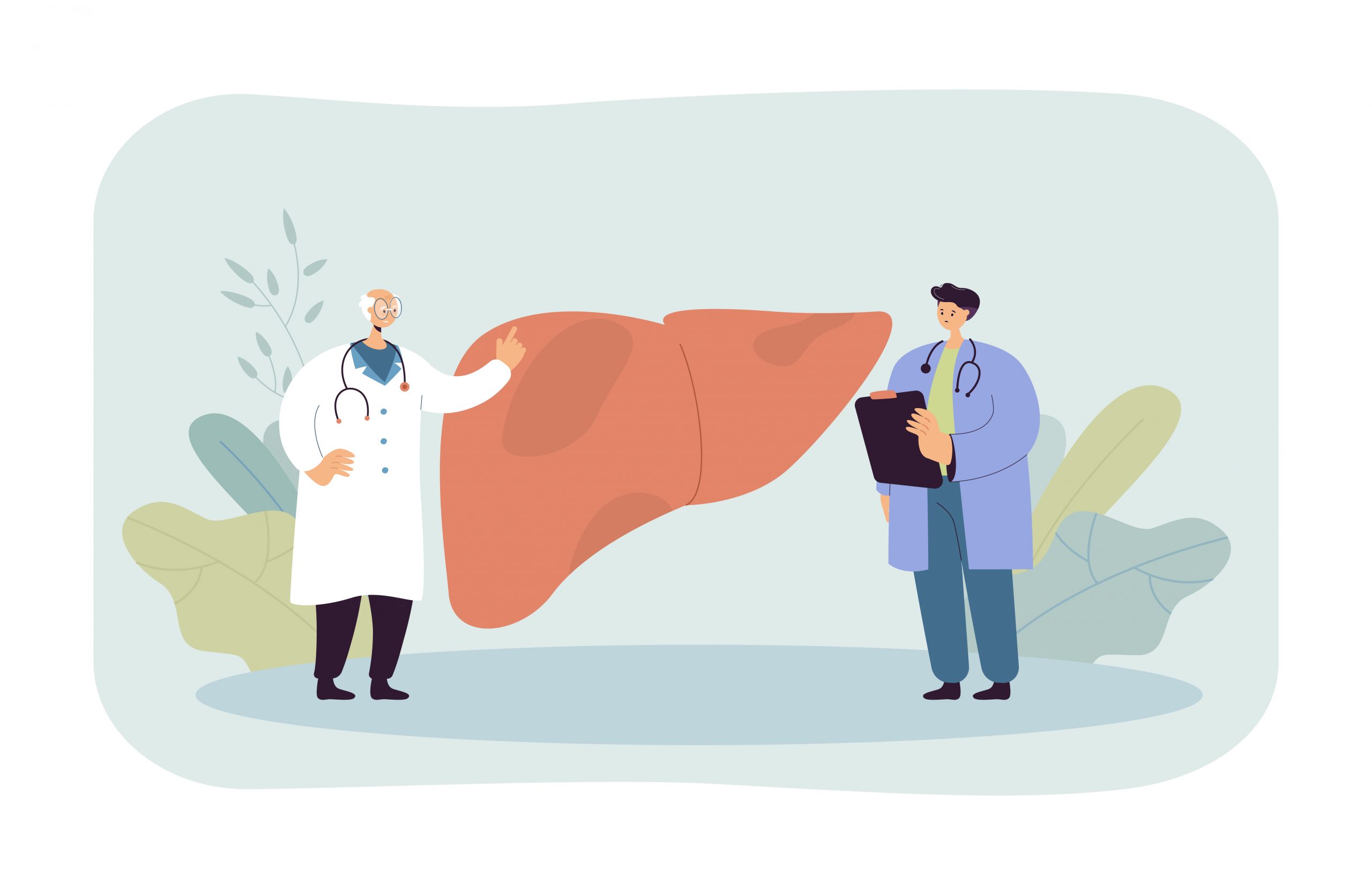

In a study of 80 individuals with non-alcoholic fatty liver disease, nutrition researchers at the University of Illinois Chicago discovered that those who engaged in regular exercise and an alternate-day fasting diet were able to improve their health.
According to a study published in Cell Metabolism, people who exercised and alternated feast and fast days—eating as much as they wanted one day and no more than 500 calories the next—saw increased insulin sensitivity and decreased liver fat, weight, and ALT, or alanine transaminase enzymes, which are indicators of liver disease.
Patients with non-alcoholic fatty liver disease have an accumulation of fat and inflammation. The disease, which affects about 65% of obese adults, is closely linked to the emergence of insulin resistance and Type 2 diabetes. Fatty liver disease has few effective medication alternatives, but if left untreated, it might result in more serious complications such as cirrhosis or liver failure.
The findings, according to study author Krista Varady, are “pretty amazing”.
“When we compared the results of our study groups, we saw clearly that the most improved patients were in the group that followed the alternate-day fasting diet and exercised five days a week,” said Varady, professor of nutrition at the College of Applied Health Sciences. “The people who only dieted or only exercised did not see the same improvements, which reinforces the importance of these two relatively inexpensive lifestyle modifications on overall health and on combating chronic diseases like fatty liver disease.”
In the clinical trial, participants were randomly assigned to one of four groups: the alternate-day fasting group, the aerobic exercise group, the combination group, or the control group, which included those who made no behavioural modifications. Participants in the exercise groups used an elliptical machine in Varady’s lab for one hour, five days a week, while those in the diet groups kept track of their dietary intake.
When coupled with exercise, alternate-day fasting was not compared to other diets in the trial, according to Varady, but she was astonished by how few individuals withdrew.
“Alternate-day fasting and exercise interventions can be difficult for people to stick to and in prior studies, we have seen significant dropout. It was very interesting to see that in this trial we had very high adherence to the interventions,” said Varady, who thought the study’s implementation at the beginning of the COVID-19 pandemic in 2020 could be a plausible explanation for the variation.
In addition to seeing improved metabolic indicators, the study authors also noted there were no serious safety events during the trial—the patients were able to safely maintain the diet and exercise for the three-month study, which Varady thinks is an indicator the intervention may be a good option for people with fatty liver disease who want to improve their health without pharmaceuticals, which can have side effects.
In their paper, “Effect of alternate day fasting combined with aerobic exercise on non-alcoholic fatty liver disease: A randomized controlled trial,” which is the first study to examine the effect of intermittent fasting combined with exercise on non-alcoholic fatty liver disease outcomes, the authors write, “Our findings also indicate that the combined intervention was effective for reducing body weight, fat mass, waist circumference, ALT, fasting insulin, insulin resistance, and increasing insulin sensitivity, among patients with obesity and NAFLD, versus controls.”
more recommended stories
 Pediatric Crohn’s Disease Microbial Signature Identified
Pediatric Crohn’s Disease Microbial Signature IdentifiedKey Points at a Glance NYU.
 High-Fat Diets Cause Damage to Metabolic Health
High-Fat Diets Cause Damage to Metabolic HealthKey Points Takeaways High-fat and ketogenic.
 Can Too Many Antioxidants Harm Future Offspring?
Can Too Many Antioxidants Harm Future Offspring?Key Takeaways High-dose antioxidant supplementation in.
 Human Antibody Drug Response Prediction Gets an Upgrade
Human Antibody Drug Response Prediction Gets an UpgradeKey Takeaways A new humanized antibody.
 Dietary Melatonin Linked to Depression Risk: New Study
Dietary Melatonin Linked to Depression Risk: New StudyKey Summary Cross-sectional analysis of 8,320.
 Type 2 Diabetes Risk Identified by Blood Metabolites
Type 2 Diabetes Risk Identified by Blood MetabolitesKey Takeaways (Quick Summary) Researchers identified.
 Microglia Neuroinflammation in Binge Drinking
Microglia Neuroinflammation in Binge DrinkingKey Takeaways (Quick Summary for HCPs).
 Durvalumab in Small Cell Lung Cancer: Survival vs Cost
Durvalumab in Small Cell Lung Cancer: Survival vs CostKey Points at a Glance Durvalumab.
 Rising Chagas Parasite Detected in Borderland Kissing Bugs
Rising Chagas Parasite Detected in Borderland Kissing BugsKey Takeaways (At a Glance) Infection.
 Can Ketogenic Diets Help PCOS? Meta-Analysis Insights
Can Ketogenic Diets Help PCOS? Meta-Analysis InsightsKey Takeaways (Quick Summary) A Clinical.

Leave a Comment